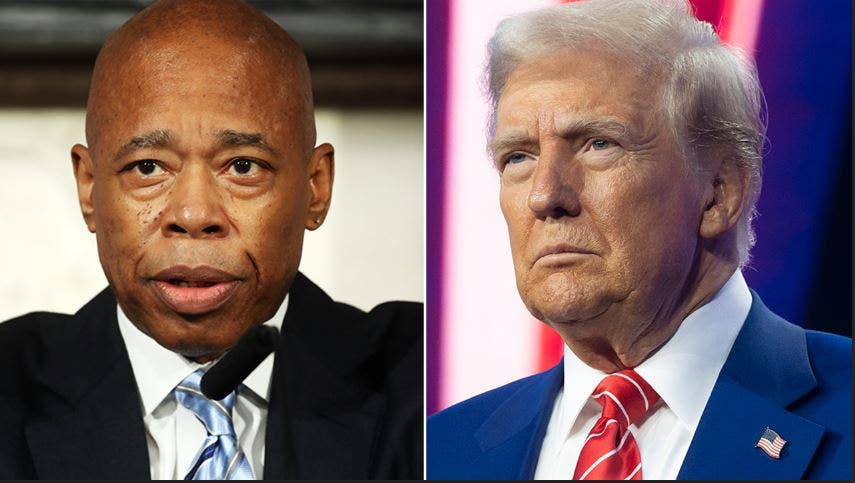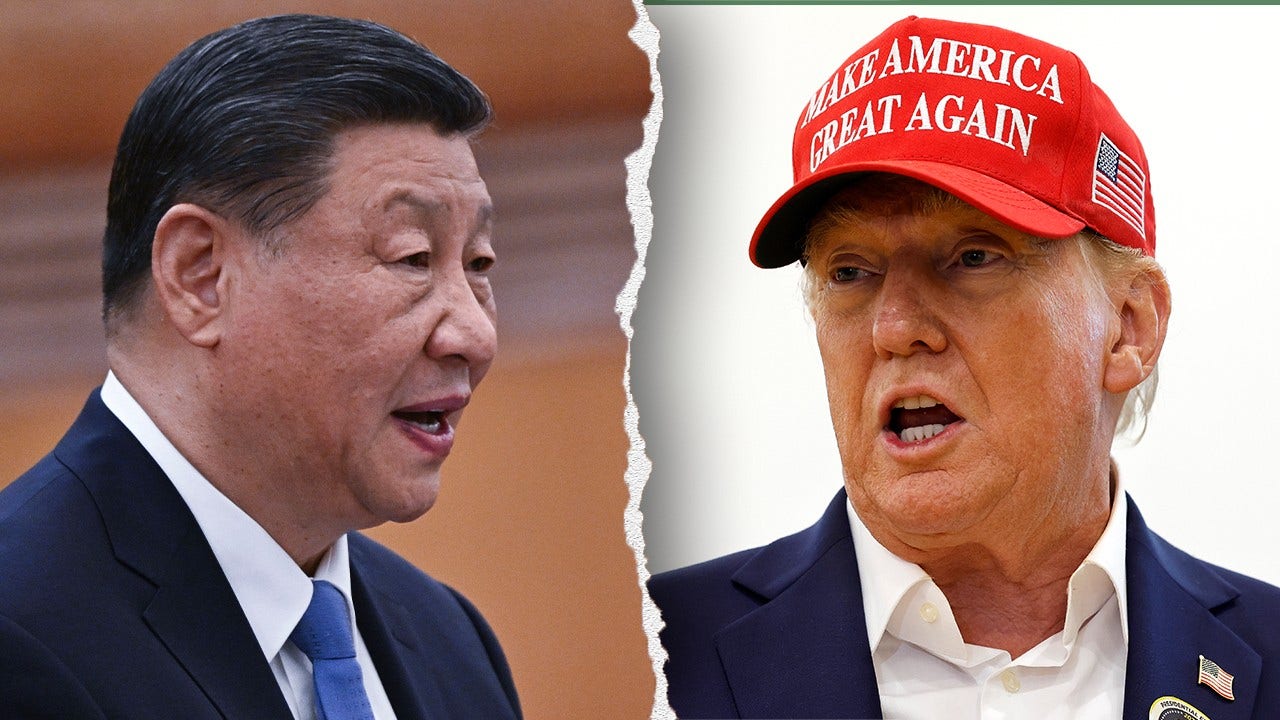By Ben Weingarten for RealClearInvestigations
Eight years ago, a holder of a modest amount of Apple stock found himself in the peculiar position of being told publicly by an angered CEO Tim Cook that his money was no good in Cupertino. Justin Danhof, a conservative activist investor, had turned up at the company’s annual shareholder meeting to ask Cook, essentially, if his desire to go green trumped his desire to generate green.
Danhof did not tell his broker to sell, but would see his outfit’s related shareholder resolution go down in flames. In 2014, his was not only a losing fight, but a lonely one.
Today, he’s no longer alone. There is a nascent but growing backlash against a corporate America perceived by many as having gone “woke.”
RELATED: If Employees Are Forbidden To Talk Politics, Why Do Their CEOs?
The pushback, and the steep uphill climb facing those doing the pushing, can be seen in the record number of conservative shareholder proposals submitted to companies during this year’s annual corporate meeting season – some 48 of them as of late April – but also the record number of progressive proposals, dwarfing conservative ones by more than tenfold at a whopping 500-plus. RealClearInvestigations obtained the data from the Sustainable Investments Institute, co-publisher of the authoritative annual Proxy Preview report.
Shareholder activism is just one front in the brewing counterrevolution against Woke Inc., one particularly evident at the state level, and increasingly in Washington too, with the possibility of control of Congress shifting to Republicans in elections this fall.
An illustration this year was the furor that erupted when progressively inclined Disney outspokenly opposed Florida’s law barring public schools from instructing very young children on sexual orientation. In response, Republican Gov. Ron DeSantis engineered a legislative revocation of Disney World’s longstanding special tax status.
Elsewhere, according to New Private Markets, a sustainable investment-focused outlet, Republican legislators and attorneys general across several states have recently launched inquiries into or introduced bills opposing the wide embrace of three initials profoundly transforming capitalism: ESG, short for Environmental, Social, and Governance.
Support Conservative Voices!
Sign up to receive the latest political news, insight, and commentary delivered directly to your inbox.
That’s an approach increasingly driven by Wall Street and endorsed by regulators to judging companies based on their devotion to achieving environmental and social goals that go beyond maximizing profits on behalf of shareholders. Among recent developments:
- Texas’ comptroller pressed more than 100 financial companies – including asset management giant and leading ESG proponent BlackRock, private equity powerhouse Blackstone, and top investment bank JPMorgan Chase – on whether they were engaged in a “boycott” of energy firms, which would preclude Texas government entities from investing with them.
- Utah officials sent a letter to credit ratings company S&P objecting to its publishing of state ESG scores as part of its credit ratings, which it argued “politiciz[ed] the ratings process” and could “unfairly and adversely” impact the market for its bonds.
- Idaho’s Senate passed legislation that would bar public investing entities like pensions from weighing ESG characteristics above more strictly economic ones, and its House introduced legislation that would prohibit investment boycotts of industries often targeted by ESG proponents, such as energy and mining.
- Wyoming’s Senate took up a bill that would have banned financial institutions from discriminating based on ESG metrics, though it died in committee. West Virginia and Kansas have reportedly introduced similar legislation.
- West Virginia’s Board of Treasury Investments has pulled funds from BlackRock, which has great influence over billions of dollars in public retirement and other investments.
- States are also pursuing ESG as an antitrust issue. Arizona Attorney General Mark Brnovich has said his office is probing “unlawful market manipulation” with firms banding together “to compel companies to shut down coal and natural-gas plants.” As Brnovich puts it: “Your retirement funds are likely helping facilitate these political campaigns to advance far-left policy goals, with consumers bearing the costs of increased energy prices.”
All told, the conservative Heartland Institute says it has identified, proposed, or helped to pass anti-ESG bills in 24 states.
RELATED: Rubio Bill Would Hold Woke Corporations Accountable
Another legislative push comes from the free market-oriented American Legislative Exchange Council. ALEC has proposed that states enact a State Government Employee Retirement Protection Act to shield pensioners “from politically driven investment strategies.”
In an interview with RealClearInvestigations, ALEC chief economist and Executive Vice President of Policy Jonathan Williams said the legislation came in response to concerns over “corporate boardroom politics,” which his organization believes must be kept out of public pension systems.

The anti-woke backlash comes in response to a years-long surge in progressive activism in corporate America, regarding issues ranging from guns and abortion to immigration, election integrity, and criminal justice. Companies have bowed to the prevailing winds by, for example, pledging to reduce greenhouse gas emissions, embracing “diversity, equity and inclusion” in employee hiring and training, or tying executive compensation to ESG performance.
One survey from consulting firm KPMG shows 82% of large U.S. corporations devoting space in regulatory filings to demonstrate their ESG bona fides.
The activism was galvanized by liberals’ alarm at the 2016 election of Donald Trump, an oldline business tycoon and climate change skeptic. A watershed moment came in 2019, when the powerful and prominent Business Roundtable redefined the purpose of a corporation, elevating vaguely defined “stakeholders” in society at large over traditional stock shareholders.
More than 180 signatories pledged to “foster diversity and inclusion” among their workforces, and to “protect the environment by embracing sustainable practices.” In 2020, George Floyd’s murder by a white police officer triggered a massive outpouring of corporate support for “racial justice” backed by some $50 billion, and spurred related initiatives.
Stephen Soukup, a longtime consultant to the institutional investment community and author of the 2021 book “The Dictatorship of Woke Capital,” told RCI that corporations face pressure to go woke from the “bottom up,” “top down,” and “outside in.”
RELATED: Woke ‘Green’ Investors Threaten The West’s Security
“As the American higher education system has gone through its own awokening,” Soukup says, “there’s been a considerable change in the beliefs of a lot of the elite, people who are both the directors and executives and employees of some of these high-profile companies.”
Among those fueling the backlash against “woke capital” or “stakeholder capitalism,” Soukup counts entrepreneur-turned-author and activist Vivek Ramaswamy; journalists such as Rupert Darwall and Andrew Stuttaford; and think-tank scholars such as Richard Morrison of the libertarian Competitive Enterprise Institute.
Christopher Rufo of the free market Manhattan Institute is another critic, often drawing on internal corporate material revealing how progressive views on “anti-racism” and gender identity manifest themselves within large corporations, including, lately, The Walt Disney Company.
The critiques from the anti-woke camp are numerous. One is that a political workplace undermines civil society. Ramaswamy, author of the 2021 book “Woke, Inc.,” argues that “apolitical spaces” are “a necessary precondition for social solidarity in a divided polity like ours.” Stuttaford writes that ESG is “a tremendous device for advancing a political agenda without the bother of going through the electoral process.”
Another contention is that ESG is an expensive gimmick. Soukup says the financial community can take exchange-traded funds, “rebrand them as ESG, and then charge double or triple the management fees, and they get people buying into this constantly.”
A related criticism is that ESG’s performance is overstated – an argument put forth in detail for regulatory agencies by the American Securities Association, which bills itself as “America’s voice for Main Street’s investors.”
Soukup challenges ESG proponents’ proposition of “doing well by doing good.” He told RCI that typically any above-market performance of ESG funds “is created for reasons other than ESG. It’s created simply because they’re good companies. If you buy Apple, for example, Apple does well not because it’s ESG, but because it’s Apple.”
Larry Fink, the ‘$10 Trillion Elephant’
To Soukup and other critics of woke capital, one man both personifies corporate America’s woke turn and bears unique responsibility for it: “The 10,000-pound elephant … or the $10 trillion elephant in the corner,” says Soukup, is Larry Fink, CEO of BlackRock, the world’s largest asset manager.
In a series of annual letters to CEOs of companies in which BlackRock invests, and in correspondence with clients, he has made his vision clear. Fink tells CEOs that “every company must … show how it makes a positive contribution to society,” noting “society is increasingly looking to companies, both public and private, to address pressing social and economic issues.”
He emphasizes that “every government, company, and shareholder must confront climate change,” calling for increased “sustainability” disclosure in order to achieve “a more sustainable and inclusive capitalism” on behalf of “all stakeholders.”
RELATED: Is The Culture War Really A Class War?
To Blackrock’s clients, Fink has said that “sustainability should be our new standard for investing,” and that the company was “committed to supporting the goal of net zero greenhouse gas emissions by 2050 or sooner.” Fink recently declared that “The issue … is no longer whether the net zero transition will happen but how ...”
BlackRock backs its words by leveraging its immense power to drive action. With $10 trillion under management, BlackRock is one of the top three shareholders, alongside like-minded asset managers Vanguard and State Street, in more than 80% of the companies in the S&P 500. The three managers of assets collectively totaling more than $20 trillion – in the range of America’s annual GDP – together own approximately 22% of the average S&P 500 company.
You the reader may own shares of one or several of BlackRock’s iShares exchange-traded funds, or be exposed to the company through a retirement plan – which means you may be supporting its agenda or the agendas of the companies it influences.

Behind the bulk of conservative shareholder activism is the formerly Danhof-led Free Enterprise Project, part of the National Center for Public Policy Research, now joined by the National Legal and Policy Center’s Corporate Responsibility Project.
These activists compete for corporate influence against dozens of ESG rivals, including smaller investment firms like Domini Impact, which describes itself as women-led; Walden Asset Management and Trillium Asset Management; blue state pension funds including New York State’s and California’s CalPERS and CalSTRS; and nonprofits As You Sow and Ceres. (BlackRock itself has faced pressure from some of these entities.)
Examples of proposals proffered this proxy season include:
- Trillium’s call on BJ’s Restaurants to disclose greenhouse gas emissions and pursue reduction targets “to achieve net-zero emissions by 2050 or sooner.”
- As You Sow’s call on building materials company Martin Marietta to disclose its “plan to promote racial justice.”
- Arjuna Capital’s call on Alphabet, Google’s parent company, to provide an annual report on the company’s efforts to ensure its board “attains racial and gender representation … better aligned with the demographics of its customers and/or regions in which it operates.”
Big asset managers like BlackRock might vote on these resolutions on behalf of millions of retirees and other clients whose nest eggs, however small and however remotely, are entrusted with the firm. Historically, the asset managers abstained. But in 2018, consistent with Fink’s messaging, BlackRock updated proxy voting guidance to suggest it would increasingly vote its conscience.
As the Wall Street Journal reported, during the 2020 proxy season BlackRock voted on more than 1,000 proposals, backing 6% of environmental, 7% of social, and 17% of governance resolutions.
RELATED: D.C. School Had Kindergartners Participate In ‘Anti-Racism Fight Club’
That year, Fink warned CEOs that BlackRock would be “increasingly disposed to vote against management and board directors when companies are not making sufficient progress on sustainability-related disclosures and the business practices and plans underlying them.” It would vote against – or abstain – on proposals to reelect individual directors a record 5,450 times.
The Engine No. 1 Coup
In 2021, BlackRock would take a vote seen as one of its most influential of all. Activist investor Engine No. 1, owner of 0.02% of Exxon Mobil, nominated several directors to the energy giant’s board in a bid to get the company to reduce its carbon footprint. Reportedly spending almost as much on its proxy fight with Exxon as the value of its holdings, the fund remarkably won three seats on its 12-member board.
It prevailed despite its small position because it won the backing of Exxon’s three largest shareholders: BlackRock, Vanguard, and State Street. BlackRock wrote of its decision: “We believe more needs to be done in Exxon’s long-term strategy and short-term actions in relation to the energy transition in order to mitigate the impact of climate risk on long-term shareholder value.”
Ramaswamy would point out in an editorial critical of BlackRock’s activism that Engine No. 1’s CEO had previously been a longtime BlackRock employee.
In addition to wielding its power as an investor, BlackRock can also impact companies through divestment. In its 2020 client letter, Fink noted BlackRock would incorporate ESG risk into its active investment process “with the same rigor” as typical measures like credit risk and liquidity risk.
Consistent with that push, Fink announced that having already rid itself of investments in “sectors with heightened ESG risk, such as controversial weapons systems manufacturers,” BlackRock would exit $500 million worth of positions in actively-managed portfolios generating significant revenues from thermal coal production.
That client letter also indicated another way Fink could impact the market: BlackRock announced it would be doubling its offering of ESG ETFs in the coming years to 150. Competitors would follow BlackRock into this space, charging investors a premium.
RELATED: Why This House Of Disney Fans Canceled Disney+ And Said Goodbye To Mickey
BlackRock’s mark on the financial industry may well be seen in other asset managers’ growing ESG product offerings, in the explosion in ESG researchers and raters, and in the pro-ESG orientation of proxy advisory firms – two of which dominate the marketplace for conducting due diligence and instructing investors on how to vote their proxies.
Nonprofit As You Sow notes – citing BlackRock’s endorsement – that over $18 trillion or a third of funds under professional management are now invested using ESG and related criteria. Total assets held in sustainable investments have multiplied 25-fold since 1995.
There are now approximately $2.7 trillion in assets managed in more than 2,900 ESG funds, and each year sees new record inflows into the space. These developments can be seen as a testament to BlackRock’s efforts.
A Big Assist From Team Biden
Its influence also extends to Washington, D.C., where its past work with the Federal Reserve has led one academic to label it a “fourth branch of government.” A like-minded Biden administration populated at high levels by ex-BlackRock personnel may further accelerate the firm’s favored trends, notwithstanding pledges of several such officials to recuse themselves on BlackRock-related matters.
Biden’s Department of Labor, which regulates private-sector retirement plans, has proposed a rule that would allow plan fiduciaries to weigh “any factor in the evaluation of an investment or investment course of action that … is material to the risk-return analysis,” as opposed to merely “pecuniary” factors.
The old standard had been perceived by some to be anti-ESG. The new one might be seen as pro-ESG, given its assertion that a fiduciary’s duty may “often require an evaluation of the effect of climate change.” Critics say this rule could compel retirement plan sponsors to steer employee savings – unbeknownst to them – into higher-expense and therefore potentially lower-yielding ESG 401(k)s, and to vote pro-ESG on proxies.
Meanwhile, as noted in a separate RealClearInvestigations article, the SEC has proposed potentially highly costly climate disclosure rules that would force companies to grapple with the unpredictable impact of climate change by disclosing reams of new information to investors.
The SEC noted that “investors with trillions of dollars of assets under management” had “supported implementation of climate-related disclosures.” The first such investor it cited was BlackRock. The rule is modeled in part on the influential Task Force for Climate Disclosure’s favored disclosure framework. BlackRock, a TCFD founding member, had lobbied for it.
The SEC under the Biden administration has also issued guidance indicating it would make it easier for shareholders to issue activist resolutions, permitting those “with a broad societal impact,” and noting that “proposals that the staff previously viewed as excludable because they did not appear to raise a policy issue of significance for [a] company may no longer be viewed as excludable.”
RELATED: Confronting The Snake Oil Of Woke Ideology
This shift may have inadvertently enabled the record number of conservative shareholder resolutions in 2022, but so too did it coincide with the far greater record number of ESG resolutions.
This year some 64% of resolutions have come to a vote. Many resolutions each year never make it to a proxy statement because activists withdraw them after companies adequately address their concerns prior to voting, or because the SEC excludes them on regulatory grounds. Seven percent of this year’s resolutions have earned majority votes, down from 10% in 2021.
For its part, BlackRock indicated in a recent note that many of the climate-related shareholder proposals it is evaluating “are more prescriptive or constraining on companies,” than in 2021, and that it would therefore be less inclined to support them.
Typically, less than a third of conservative shareholder resolutions have made it to a vote. Thus far in the 2022 proxy season, none have passed.
GOP Ferment in Congress
While federal agencies propel the ESG agenda, critical federal lawmakers too are beginning to enter the fray, setting up a potential showdown should the GOP win the House and/or Senate in 2022.
When Utah state officials criticized S&P’s credit rating division for efforts to incorporate ESG indicators into state ratings, they were joined by the state’s Republican Senators Mike Lee and Mitt Romney, and its four House members, all Republicans.

One member, Rep. Chris Stewart, stated that he and his colleagues were pushing others to discuss the “proliferation of ESG metrics” with state treasurers and regulators – metrics the anti-ESG Heartland Institute have likened to social credit scores. Rep. Stewart also told Roll Call that if Republicans win the House, “We’re going to be able to put some limits on” the SEC’s ESG thrust.
Rep. Beth Van Duyne of Texas and more than a dozen Republican co-sponsors have already introduced a bill that, according to CEI’s Morrison, would “prevent the SEC from requiring climate change and greenhouse gas disclosures, but leave companies free to share whatever such information they believed was material to shareholders and potential investors.”
As Morrison sees it, Congress’ “increasing skepticism” of ESG investing “dovetails perfectly with policies that governors and legislators are advancing at the state level.”
RELATED: Wokeness Is Destroying Sports
Lawmakers operate, Danhof asserts, buoyed by “pretty much every conservative group” in the country, a stark contrast from the situation just several years ago.
Ramaswamy recently returned to his entrepreneurial roots, founding Strive Asset Management, an Ohio-based investment firm. There, he’ll be joined by colleagues including Danhof, who left the Free Enterprise Project after more than a decade to become Strive’s head of corporate governance. According to a press release announcing the money manager’s launch, it aims to take on BlackRock and peers, decrying their invocation of “stakeholder capitalism” to justify using “clients’ funds to exercise decisive influence over nearly every U.S. public company to advance political ideologies that many of their clients disagree with.”
Instead, it hopes to promote “Excellence Capitalism,” supporting “American companies to focus exclusively on delivering excellent products and services to their customers…”
For his part, in a 2022 letter to CEOs, Fink felt compelled to address critics, clarifying that “Stakeholder capitalism is not about politics. It is not a social or ideological agenda. It is not ‘woke.’ It is capitalism, driven by mutually beneficial relationships between you and the employees, customers, suppliers, and communities your company relies on to prosper. This is the power of capitalism.”
Syndicated with permission from Real Clear Wire.
The opinions expressed by contributors and/or content partners are their own and do not necessarily reflect the views of The Political Insider.


























































